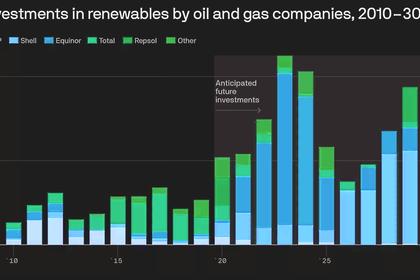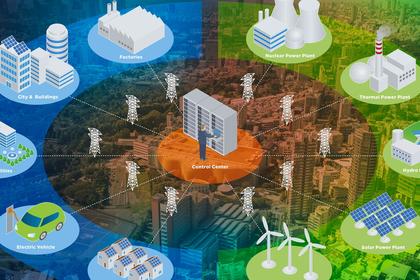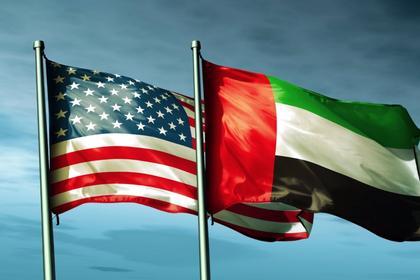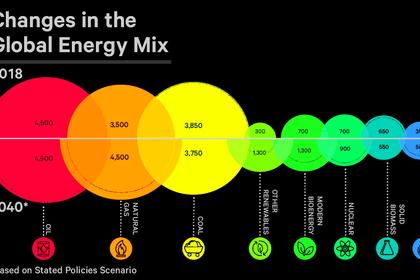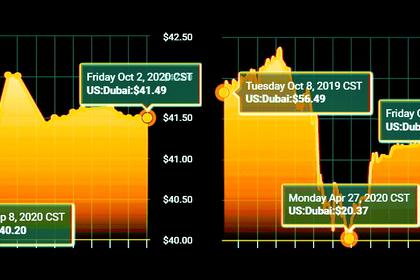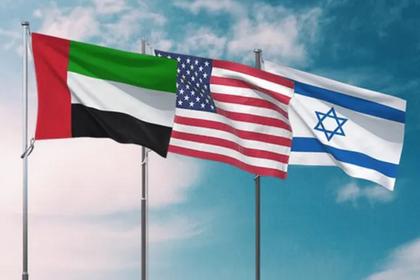
RENEWABLE ENERGY FOR UAE
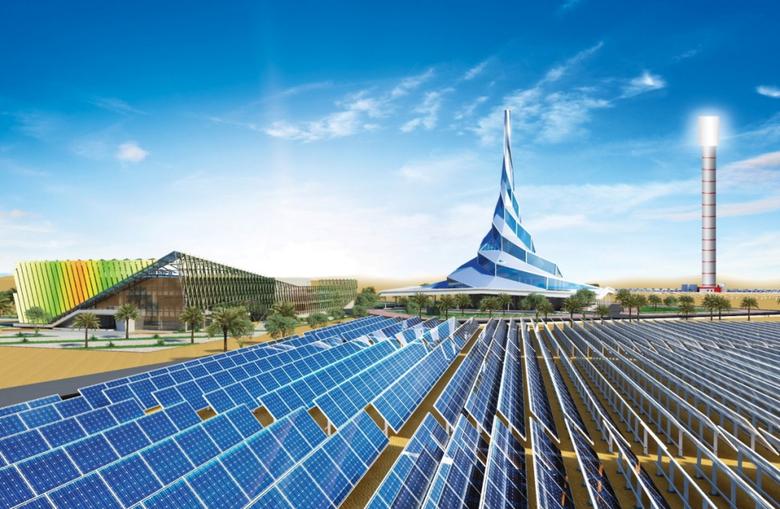
WAM - DUBAI, 1st November, 2020 -- The Global Renewables Outlook: Energy Transformation 2050 report issued by the International Renewable Energy Agency, IRENA, in April 2020 indicated that the transition to renewables, efficiency and electrification could drive overall socio-economic development, supported by comprehensive policies to cut carbon emissions. The use of hydrogen and synthetic fuels, direct electrification, advanced biofuels and carbon management will be crucial ways to cut CO2 emissions beyond 2050, along with innovative business models, structural changes and behavioural adaptation.
The post-COVID recovery: An agenda for resilience, development and equality also issued by IRENA showed that every one million dollars (USD) invested in renewables would create three times more jobs than in fossil fuels. It also notes that increasing government and private sector spending on renewables will provide 19 million jobs by 2030.
Strategic planning for a sustainable future Renewable energy is an essential requirement for sustainability and stands at the forefront of the UAE's strategic priorities. The UAE leads in efforts to adopt the latest innovations that address climate change, mitigate the effects of global warming, and plays a significant role in supporting the United Nations Sustainable Development Goals 2030.
The UAE has taken early steps to bid farewell to the last barrel of oil, and achieve a balance between economic development and maintaining a clean, healthy, and safe environment. Today, through its strategies and investments, the UAE is leading global efforts in renewable and clean energy sectors. The UAE Energy Strategy 2050 aims to achieve an energy mix that combines renewable and clean energy sources to balance economic requirements and environmental goals. The UAE will invest AED 600 billion until 2050 to meet the growing energy demand and ensure the sustainable growth of the economy.
Dubai Clean Energy Strategy 2050 Dubai has become an international pioneer in developing a clean and renewable energy sector. It has developed many techniques and practices to enhance the efficiency of the energy sector while rationalising consumption and finding alternative solutions to conventional energy. This supports the sustainable development of the Emirate. The Dubai Clean Energy Strategy 2050, which was launched by His Highness Sheikh Mohammed bin Rashid Al Maktoum, Vice President and Prime Minister of the UAE and Ruler of Dubai, aims to provide 75 percent of Dubai's power capacity from clean energy by 2050. Meeting the Dubai Clean Energy Strategy 2050 targets requires a capacity of 42,000MW of clean and renewable energy by 2050.
The strategy consists of five main pillars: infrastructure, legislation, funding, building capacities and skills, and having an environment-friendly energy mix. The infrastructure pillar includes initiatives such as the Mohammad bin Rashid Al Maktoum Solar Park, which is the largest single-site solar power project in the world, with a planned capacity of 5,000 megawatts, MW, by 2030. Since its launch, the solar park's projects have seen considerable interest from international developers, reflecting the confidence of international investors in the projects that are supported by Dubai Government. The capacity of the solar projects at the solar park is 1,103 MW from photovoltaic solar panels. The total capacity of the projects under construction at the solar park is 1,850MW from photovoltaic and Concentrated Solar Power, CSP, with future phases to reach 5,000MW by 2030.
Dubai Electricity & Water Authority, DEWA, has attracted considerable investments to the UAE from the private sector and foreign banks, resulting in increased cash flows to the economy of Dubai and the UAE. DEWA has attracted investments around AED 40 billion from the Independent Power Producer, IPP, model, which strengthens public-private partnerships. Through this model, DEWA received the lowest global solar energy prices for five consecutive times, making Dubai a global benchmark for solar energy prices.
Strengthening the partnership between the public and private sectors The UAE's advanced infrastructure, its strategic location, its openness to the world, and the attractive environment for investments and laws that protect the rights of investors, have contributed to its global leadership. This has attracted substantial foreign direct investment and strengthens its position as an essential destination for the largest international organisations and brands, as well as the preferred place to live, work and invest. In implementing solar energy projects of the Mohammed bin Rashid Al Maktoum Solar Park, Dubai has adopted the IPP model, which strengthens the partnership between the public and private sectors. DEWA's investments in the energy sector are estimated at AED 86 billion over the next five years.
"The Eight Principles of Governance in Dubai show that Dubai's growth is driven by three factors: a credible, resilient and excellent government; an active, fair and open private sector; and public and government-owned flagship companies that compete globally and move the economy locally. In light of the ambitious vision and the overall development of Dubai, which it translates into major projects and promising opportunities, especially in energy, water, and the environment; cooperation and integration between the public and private sectors have become the foundation to achieve the Emirate's ambitions. This partnership consolidates its position as a developed model that provides a highly supportive environment for investments,'' said Saeed Mohammed Al Tayer, MD & CEO of DEWA.
''We have strategic partnerships with many international companies, especially in the renewable and clean energy sector and cooperate with international companies in implementing projects of the Mohammed bin Rashid Al Maktoum Solar Park based on the IPP system. We have attracted investments estimated at AED 40 billion through this model, which strengthens the partnership between the public and private sectors. Through this model, DEWA has achieved world records in obtaining the lowest prices for solar energy projects five times in a row. Dubai has become a benchmark for solar energy prices worldwide," he added.
Partnerships ACWA Power ACWA Power participates in several projects of the Mohammed bin Rashid Al Maktoum Solar Park based on the IPP model.
Mohammad Abunayyan, Chairman of ACWA Power, said: "Despite the implications of Covid-19, the government of Dubai, under the leadership of His Highness Sheikh Mohammed bin Rashid Al Maktoum, Vice President and Prime Minister of the UAE and Ruler of Dubai, continues to progress towards the achievement of its vision to increase its renewable energy share to 75 percent by the year 2050. These advancements have been made possible through the comprehensive objectives and robust efforts set forth by Dubai towards its ambitious strategy of achieving the lowest carbon footprint and transforming the Emirate into a global clean energy and green economy hub."
Abunayyan affirmed that the Dubai Government's commitment and its progressive vision concerning the clean energy sector have undoubtedly strengthened investor confidence in the Emirate's wise leadership. The various policies and procedures established by the Dubai government, aimed at mitigating and addressing the adverse effects of the COVID-19 pandemic, have also ensured optimism and confidence in the Emirate's investment attractiveness.
Siemens DEWA has an ongoing strategic partnership with Siemens for over 30 years. They collaborate in a wide range of sectors, mostly technological solutions for power generation. Together, they have pioneered innovative sustainable solutions such as gas turbine power augmentation through wet compression technology, which increases capacity, improves efficiency, and reduces emissions. One of the promising projects that DEWA is implementing with Siemens and Expo 2020 Dubai, is the Green Hydrogen project to produce hydrogen gas using solar power, at the Mohammed bin Rashid Al Maktoum Solar Park.
Emission Reduction More than 14 million tonnes of emissions were reduced in Dubai in 2019, a 22 percent reduction compared to business as usual. Results achieved exceeded the target set in the Dubai Carbon Abatement Strategy, which aims to reduce carbon emissions by 16 percent by 2021. The Demand Side Management programmes in Dubai contributed to reducing per capita annual consumption of water by 19.5 percent, and per capita annual consumption of electricity decreased by 19 percent in 2019 compared to 2010.
Research & Development DEWA's R&D Centre at the Mohammed bin Rashid Al Maktoum Solar Park is an ideal example of public-private partnerships. The Centre collaborates with several academic institutions, such as Stanford University; UAE University; Khalifa University of Science Technology; Sharjah University and Amity University to develop joint research in renewable and alternative energy.
The R&D Centre highlights four major operational areas: electricity generation from solar and clean energy, integration of smart grids, energy efficiency, and water. Its internal labs study and test system reliability, and it carries out external field testing of new technologies and equipment, including the performance and reliability of solar PV panels and removing dust.
It is the only Centre in the UAE that focuses on renewable energy, smart grid technologies, and energy efficiency. It includes the most extensive testing facilities in the UAE for PV and issuing compliance certificates. The Centre conducts multiple and strenuous tests for PV panels in desert climate conditions. The Centre consists of 40 researchers, including 20 PhD and master's degree holders comprising 54 percent of the team. The team has published over 50 research papers in international conferences and scientific magazines.
Stanford University DEWA collaborates with the US-based Stanford University in several areas of R&D, through the R&D Centre's team and DEWA's membership in Stanford's 'Energy 3.0' programme. These areas include Radiative Cooling to improve the efficiency and performance of solar panels, the use of autonomous robots in the control and maintenance of solar power plants, and the use of Artificial Intelligence, AI, to anticipate the performance and production of solar PV plants in the short term.
Joining the Energy 3.0 Programme provides DEWA's researchers with a significant opportunity to take advantage of the global expertise at Stanford University by ensuring they have access to best practices in electricity, water, AI, and smart networks. The programme also includes R&D in the fields of renewable energy, smart networks, energy efficiency and storage, and data analysis, among others.
"Collaboration with companies that have a long-term strategic outlook enables Stanford to create technologies, policies and business models that we expect to be deployed in the coming years and decades. We expect to continue and expand our engagements with DEWA to develop impactful research as we all try to help create this next era in energy," said Jimmy Kuo-Wei Chen, Managing Director of Stanford University Companies.
"DEWA joined the Stanford Energy 3.0 affiliate program in 2019 to support cutting edge energy research at Stanford in three areas of interest to DEWA. These include vital areas of DEWA's work, which are passive radiative cooling to improve solar cell efficiency, real-time solar energy forecasting and Haptic Robotics. The research results have been promising, and DEWA is now considering establishing one or more sponsored research projects in these areas," added Chen.
UAE University DEWA signed an MoU with United Arab Emirates University (UAE University). The MoU worth over AED 15 million, outlines the framework to research dust mitigation on solar panels. As per the MoU, UAE University is committed to conducting research, analytical studies, and internal and external tests, in cooperation with the R&D Centre.
"The partnership also includes hosting DEWA's 'Researcher' initiative at the Emirates Centre for Energy and Environment Research, ECEER. The ECEER provides logistical support to the initiative's team for sharing knowledge and benefiting from the available resources and facilities. In its initial stages, it has already developed a support mechanism to graduation projects of the College of Engineering. Two energy projects are currently being evaluated," said Dr. Abdulrahman Alraeesi, Assistant Professor of Chemical Engineering, UAE University.
"The academic-business partnerships align with the UAE's direction and strategic priorities. This partnership remains, as it is the main driving force of both sectors' success. The business sector needs strong and sustainable support from UAE nationals and residents to ensure stability and development. It has become necessary to focus on energy and water and enhance partnerships in those areas, especially with the tremendous development in the UAE in all areas, as well as the steady increase in population. This supports research and innovation in renewable and conventional energy. It also increases the efficiency of water desalination and diversifying water resources," added Alraeesi.
Khalifa University of Science and Technology "As a top-ranked research-intensive academic institution focusing on the UAE's strategic economic sectors, Khalifa University of Science and Technology is currently partnering with DEWA on water desalination, sharing our expertise in this critical area. We are also exploring future collaborations in solar energy, advanced materials and Industry 4.0 as part of our endeavour to reach out to vital economic areas such as utilities, which form the backdrop for building future smart cities. Such industry-academia partnerships lay the foundations for an effective knowledge-based economy in which each sector contributes to the other in a symbiotic relationship, expanding the benefits the communities will eventually obtain," said Dr. Arif Sultan Al Hammadi, Executive Vice President at the Khalifa University of Science and Technology.
Sharjah University "We are facing several challenges related to water, energy and food security. However, the strong research in academic institutions and the directions of industrial sectors, qualify the UAE to face those challenges. Our partnership with DEWA enables us to find several solutions for future challenges. DEWA is also a prestigious destination for fresh graduates. We hope to continue collaborating with DEWA's R&D Centre in several areas. These include the 'Researcher' programme and other research by the faculty staff, and organising panel discussions, seminars, and meetings of the Advisory Committee Programme," said Dr. Abdul Hai Al-Alami Associate Chairman of Sustainable Renewable Energy, Sharjah University.
Amity University Dubai DEWA and Amity University collaborate to conduct academic and applied research to develop the renewable and alternative energy sector. Amity University provides support and training for DEWA's students through scientific programmes with the supervision of both parties. This is aligned to DEWA's strategy to build the capacity of its Emirati workforce to the highest standards, and empower them with the needed skills and experience to lead the future of energy, water, and sustainable development for Dubai.
"Research and development are essential to improving our technical capabilities and creating processes, products and services that are innovative and impactful. As we work toward preparing for the next 50 years, investing in R&D and implementing new ideas has become more important for businesses. DEWA's R&D Centre will play a crucial role in developing energy-efficient and sustainable solutions that can be integrated into the daily lives of Dubai's residents. We are certain that the initiative will also bring research to the forefront for businesses across the UAE and inspire university and school students to get more involved," said Dr. Vajahat Hussain, CEO of Amity Education.
WETEX and Dubai Solar Show In line with the vision and directives of the wise leadership in transforming challenges into opportunities, DEWA organised the Water, Energy and Technology and Environment Exhibition, WETEX, and Dubai Solar Show this year on a 3D virtual platform, from 26 to 28 October 2020, for the first time in the Middle East and North Africa. This year's exhibition attracted 63,058 visitors from around the world. This is the largest number in the exhibition's history of 22 years.
WETEX and Dubai Solar Show is the largest of its kind in the region and one of the largest specialised exhibitions in the world, has become an annual event for international companies and institutions specialised in energy, water, environment, oil and gas and green development, to expand their business and enhance their activities in the UAE; where civilisations meet, dreams come true, and ambitions are realised.
-----
Earlier:
